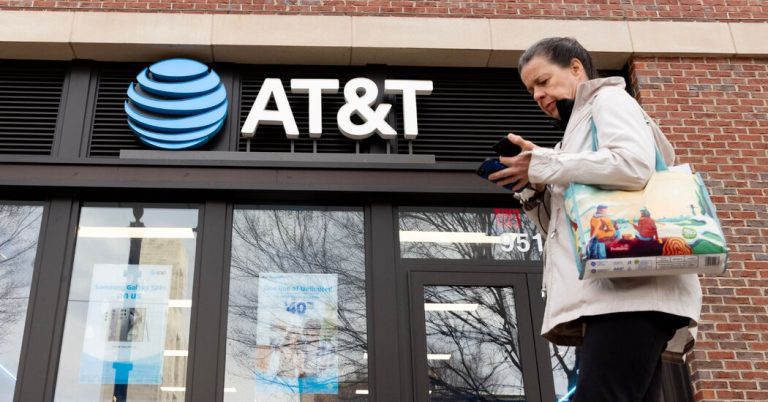AT&T will offer a $5 credit to customers affected by a widespread outage Thursday caused by technical problems the company faced as it tried to expand its network, its chief executive said Sunday.
The outage, which began around 3:30 a.m. Eastern time, temporarily disrupted connections for users across the United States.
Some of the cities affected were Atlanta, Los Angeles and New York, according to Downdetector.com, which tracks user reports of telecom and internet outages.
At its peak, the site had received about 70,000 service outage reports for AT&T. Service was fully restored after about seven hours.
“Regardless of the timing, one thing is clear – we have disappointed many of our customers, including many of you and your families,” AT&T Chief Executive John T. Stankey wrote in a letter Sunday. “For that, we apologize.”
In an effort to “do it right,” AT&T is offering customers a $5 credit on their AT&T Wireless bill, according to the company’s website.
“For the segment of consumer and small business customers most affected by the outage, we are automatically applying an account credit to compensate them for the inconvenience they experienced,” the company said.
It will take one to two billing cycles for the credit to appear, depending on when a customer’s account is closed, the company said.
Prepaid customers will have options available if they are affected, Mr. Stankey wrote, but he did not specify those options.
AT&T also said it is “working closely” with Mid-Market and Enterprise customers, which are Internet plans for businesses, to address their concerns.
It was not immediately clear how much the credits would be in lost revenue. A representative for the company could not be reached Sunday.
In a statement, AT&T emphasized that the outage was not caused by a cyber attack.
“Our initial review of the cause of Thursday’s outage indicates that it was due to the implementation and execution of an incorrect process used during our network expansion work,” Mr. Stankey wrote in his letter.
The credit is intended to reimburse customers for the day service was lost, he wrote.
“I believe that crediting these customers for essentially a full day of service is the right thing to do,” Mr. Stankey wrote.




